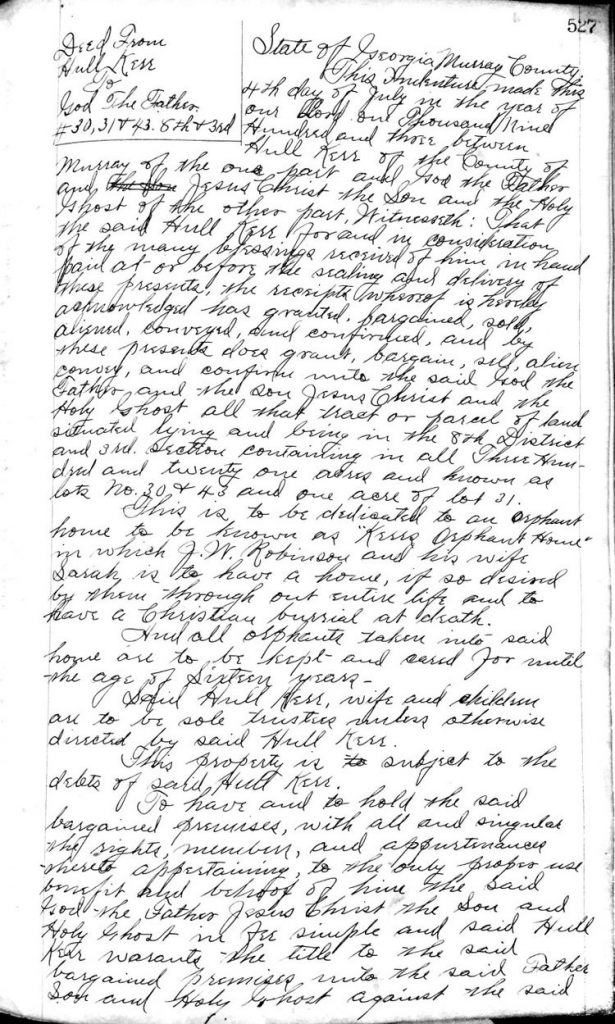
In Georgia and Tennessee, only the grantor (the seller) must sign a deed conveying real property. Even so, the grantee (the one receiving the property) must accept the property. This usually isn’t an issue as real estate is usually a desirable thing. However there have been instances where this isn’t the case. For example, if someone had a piece of swampland she was tired of paying tax on, and tried to deed it away, this wouldn’t work.
My favorite example of this is the story of Hull Kerr. Mr. Kerr owned significant farmland in Murray County, Georgia in the late 1800’s. As a devout Christian, he sought to show his appreciation by giving away over 300 acres for use as an orphanage. To effect this, he prepared a deed as follows:
Hull Kerr of the county of Murray of the one part and God the Father and Jesus Christ the son and the Holy Ghost of the other part, Witnesseth: that I the said Hull Kerr For and in consideration of the many blessings received of him in hand paid at or before the sealing and delivery of those present the receipt whereof is hereby acknowledged has granted, bargained, sold, aligned, conversed, and confirmed, and by these present does grant, bargain, sell, align, convey, and confirm unto the said God the Father, and the Son Jesus Christ, and the Holy Ghost all that tract or parcel of land situated lying and being in the 8th District and 3rd section containing in all 321 acres.
Kerr gave property straight to the Trinity. Kerr was apparently trying to place the property in trust. When leaving property to a trust, however, the property must actually be titled to the trustee, not the trust or beneficiary itself.
Kerr stored up his treasures in heaven, but his earthly plans did not work out. The land is now a mobile home park and some residential lots.

